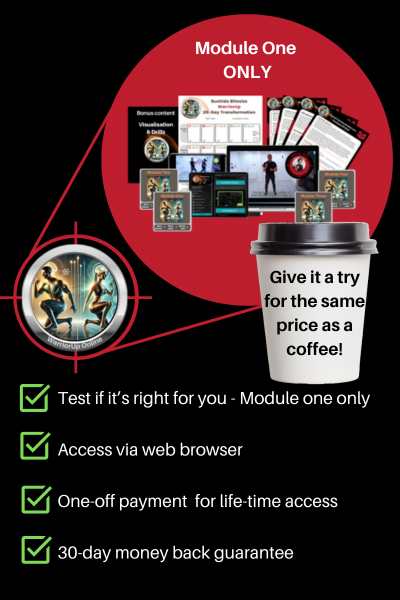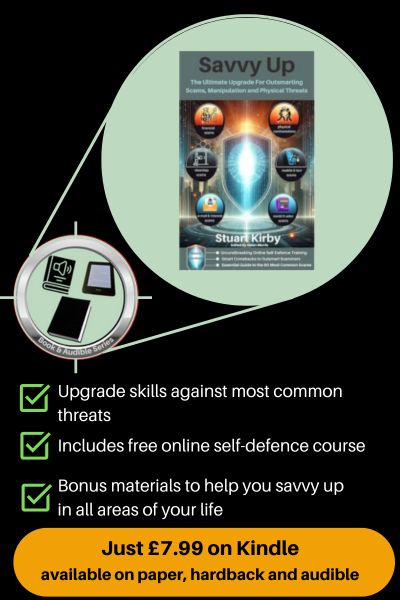
Exams, Pressure & the Power of Preparedness
Written by Helen Morris (LECOWarriorMum)
Why Self-Defence Isn’t Just for the Streets—It’s for Life’s Stress Tests Too
My two aren’t quite at GCSE level yet—10 and 7 years old—but I’ve seen enough frazzled faces, fridge-stuck revision timetables, and teary WhatsApps from mum-friends to know: exam season is intense.
Here’s the truth bomb most people miss:
- Exam stress isn’t just about school.
- It’s practice for the pressure they’ll face as adults—
- Presentations. Job interviews. Confrontations. Life curveballs.
So, if you’re a midlife mum like me, watching your kid buckle under pressure (or freeze up completely), take heart. There’s a way to build their inner armour—and it doesn’t have to involve shouting “focus!” down the hallway or bribing them with KitKats.
Enter: The Mu-shin Mindset
Mu-shin means “no mind”—a calm, instinctive readiness that doesn’t crumble under pressure. At Mu-shin Self-Defence, we train young people to develop exactly that.
And no, it’s not all kicks and punches (although those come in handy too).
We’re talking about real resilience skills—the kind that help teens:
- Handle high-pressure moments without panic
- Speak up when they’re under threat—physically or emotionally
- Recover from setbacks with confidence, not shame
Sound useful for exam stress? That’s because it is.
Exams Are a Dress Rehearsal for Life
Exams are one of the first times teens feel the weight of expectation.
They’re not just tested on memory—they’re tested on coping strategies.
Without the right tools, stress can spiral into:
- Shutdowns and avoidance
- Angry outbursts
- Low confidence that sticks around long after results day
With practice, they can learn to perform under pressure—without losing themselves.
And surprisingly, many of these tools are perfect for exam prep:
✔️ Verbal De-escalation = Inner Self-Talk
The same way we teach teens how to talk someone down in a street confrontation, we teach them to talk themselves down when panic creeps in.
“I’ve done what I can. I’ve got this. One question at a time.”
✔️ Tactical Breathing = Nervous System Reset
Stress floods the body, but it can be tamed.
Breathing techniques we use before sparring or during high-adrenaline moments also help with pre-exam nerves.
4-count in, 4-hold, 4-out.
Take a two-minute calm reset before heading into the exam hall.
✔️ Muscle Memory = Confident Habits
We stack small, instinctive habits so that they become second nature.
The same goes for study routines
Habit-stacking (as featured in our Teen Toolkit) =
→ “I brush my teeth, then I do 20 minutes of revision.”
→ “I finish my flashcards, then I do 5 minutes of breathing.”
It’s not just about results. It’s about ownership.
Resilience is a muscle that needs to be flexed.
Stressful moments will inevitably arise—at school, in relationships, and at work.
But when our teens are equipped with tools to deal with pressure, we raise a generation that doesn’t fold when life turns up the heat.
So the next time your teen is mid-meltdown, or you find yourself Googling “how to motivate a teenager during exams,” remember this:
They don’t need a perfect plan.
They need mental agility.
They need instinctive confidence.
They will likely benefit from Mu-shin Self-Defence, the self-defence system that focuses on the self through mindset, verbal, tactical, and physical training.
And if you haven’t taken our 2-minute [Savvy Safety Quiz] — do it now and see how it could shift how your teen walks through life from here on in.
Download our free [Teen Toolkit]
It’s packed with practical tips on mindset, awareness and instinctive safety skills.
Here’s to calm minds, confident teens, and DAM good advice-
Digestible
Actionable
Memorable
Here are practical tips to support your teen (and yourself) through exam season:
- Listen, Don’t Lecture
Your teen doesn’t need more pressure—they need understanding. Create a new and private space for them to talk through anything, and don’t try to fix everything. A simple “Sounds like you’re really stressed. Want to talk about it?” can go a long way.
- Structure with Flexibility
Help them create a realistic study plan. Teens often underestimate how long things take and the realisation of just how much they need to do can be enough to put them off, so break sessions into 25-minute chunks (Pomodoro method), with short breaks for snacks and walks. Allow wiggle room—some days are tougher than others.
- Feed the Brain and Body
Fuel matters! Keep tasty, healthy snacks around (stuff you know they will like), and encourage regular meals. Hydration and protein-rich breakfasts can improve focus. Eggs are a great start -scrambled egg with some avocado will fill them nicely and set the tone for a healthy and productive day. Avoid the sugary highs and caffeine overload.
- Sleep is Sacred
Resist the temptation to let them study late into the night. A tired brain is a foggy brain. Keep a calming evening routine and aim for 8–9 hours of sleep. Try some relaxing sleep music. It works well for my ten-year-old.
- Be the Calm
Your energy sets the tone. If you’re tense and frazzled, they’ll feel it. Take care of your own stress—go for walks, breathe deeply, and have a friend on standby for a secret rant if you need it. You’re modelling how to handle pressure, too.
- Chill Moments Count
Plan small joys: a favourite film night, a tech-free meal, and a game of cards. Watch your favourite comedian together. Laughter and connection give their nervous system a reset.
- Celebrate the Effort
Whatever the results, praise their effort. “You’ve worked so hard—I’m proud of you, whatever happens.” This builds resilience and a healthy mindset around failure and growth.
You can’t take the exams for them, but you can be their safe place. The calm in their chaos. The hug at the end of a hard day. That’s what they need and what they’ll remember most.
You’ve got this—and so do they.



